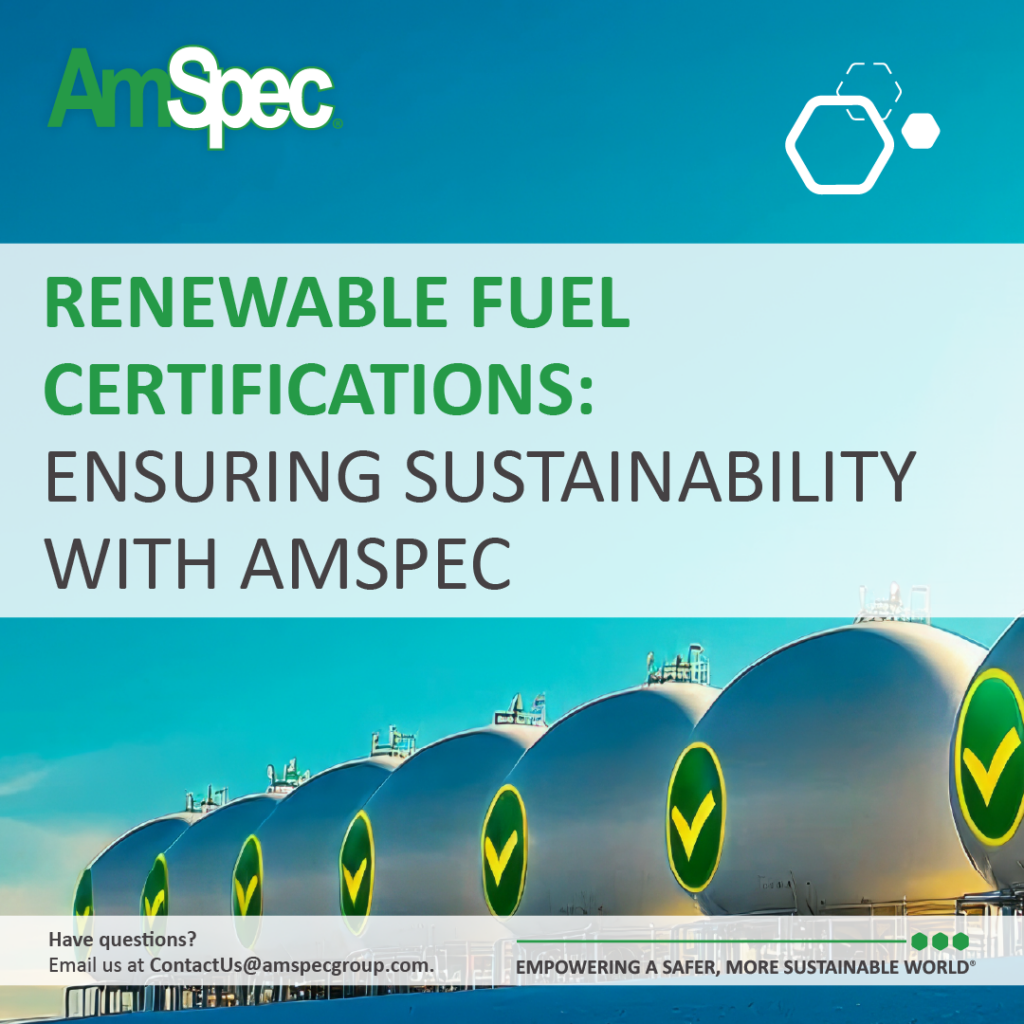
In the push for a sustainable energy future, renewable fuels are becoming increasingly important. These fuels, sourced from materials such as biomass, biogenic waste, and recycled products, help reduce greenhouse gas emissions and lessen reliance on non-renewable resources. However, ensuring these fuels meet sustainability and traceability requirements is critical to their success. Renewable fuel certifications serve as essential tools in achieving these goals.
The Importance of Renewable Fuel Certifications
Renewable fuel certifications provide standardized systems to verify that fuels comply with strict sustainability criteria. These certifications confirm that renewable fuels are produced, sourced, and processed responsibly, meeting environmental, social, and regulatory standards. They also promote transparency, bolster consumer confidence, and open up markets for certified products.
Key Goals of Renewable Fuel Certifications:
- Reducing Greenhouse Gas Emissions: Ensuring renewable fuels significantly cut emissions compared to fossil fuels.
- Protecting Natural Resources: Conserving biodiversity and managing land use sustainably.
- Ensuring Material Traceability: Establishing reliable chain-of-custody systems.
- Supporting Social Responsibility: Upholding labor rights and promoting ethical practices.
Prominent Renewable Fuel Certification Programs
1. International Sustainability and Carbon Certification (ISCC)
Established in 2010, ISCC is a globally recognized certification system originally designed to meet the European Union’s Renewable Energy Directive (EU RED) standards. Over time, it has expanded to cover diverse sectors, including agriculture, chemicals, and packaging.
- Notable Features:
- Certifies agricultural biomass, biogenic waste, circular materials, and renewable energy products.
- Utilizes chain-of-custody models such as mass balance, physical segregation, and controlled blending.
- Operates in more than 100 countries.
2. Roundtable on Sustainable Biomaterials (RSB)
The RSB certification focuses on biofuels and biomaterials, promoting environmental and social sustainability. Its multi-faceted approach ensures a balance of ecological and economic considerations.
- Notable Features:
- Emphasizes greenhouse gas reduction, biodiversity conservation, and fair labor practices.
- Recognized by EU RED.
- Engages stakeholders across various sectors.
3. REDcert
REDcert provides certification services tailored for European biofuel markets, ensuring alignment with EU RED guidelines.
- Notable Features:
- Covers biofuels, bioliquids, and biomass for energy production.
- Simplifies compliance for EU market access.
4. Bonsucro
Bonsucro specializes in the sustainable production of sugarcane-derived products, including ethanol.
- Notable Features:
- Focuses on economic, social, and environmental aspects of sugarcane supply chains.
- Encourages efficient and ethical production practices.
5. Biomass Biofuels Sustainability Voluntary Scheme (2BSvs)
2BSvs supports sustainable production of biofuels and biomass, meeting EU RED requirements.
- Notable Features:
- Verifies greenhouse gas savings and land use compliance.
- Provides a straightforward certification process.
6. Better Biomass
Better Biomass certifies the sustainability of biomass used for energy and materials, covering solid, liquid, and gaseous forms.
- Notable Features:
- Encompasses environmental, social, and economic sustainability principles.
- Applicable to diverse industries.
The Certification Process
While the exact steps vary by program, most certifications follow a similar structure:
- Application: Companies apply for certification with the relevant organization.
- Audit: Initial evaluations assess compliance with sustainability and traceability standards.
- Review: Audit results are analyzed to ensure all criteria are met.
- Certification: Successful applicants receive certification, typically valid for one year.
- Monitoring: Regular audits ensure ongoing adherence to standards.
Advantages of Certification
Access to Key Markets
Certification is often mandatory for accessing regions like the EU, where strict sustainability regulations apply.
Enhanced Credibility
Certified products demonstrate a company’s commitment to sustainability, earning consumer trust and market recognition.
Regulatory Alignment
Certifications simplify compliance with complex international regulations, reducing legal and operational risks.
Environmental Benefits
Certified fuels contribute to lower emissions and sustainable resource management.
Real-World Impact: ISCC Certification
For example, a biofuel producer aiming to enter the European market would find ISCC certification invaluable. By adhering to EU RED standards, the producer gains access to high-value markets while showcasing environmental responsibility. The ISCC’s robust traceability system ensures accountability throughout the supply chain, earning trust from regulators and customers alike.
Final Thoughts
Renewable fuel certifications are indispensable for ensuring sustainable production and usage of renewable energy sources. Systems like ISCC, RSB, and others empower organizations to meet global sustainability demands, strengthen market positions, and contribute to environmental goals. As renewable fuels become a cornerstone of the energy transition, certifications will remain critical in shaping a sustainable future.